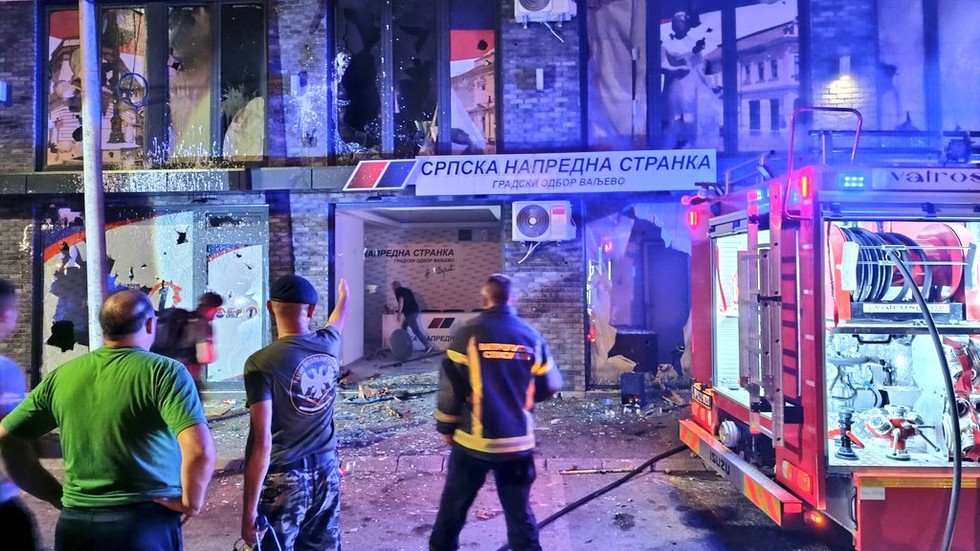Violent clashes erupted across Serbia this week following an arson attack on the offices of the ruling Serbian Progressive Party (SNS), deepening a political crisis that has simmered since last year’s fatal infrastructure collapse.
Protests intensified Wednesday in the western city of Valjevo, 100 kilometers from Belgrade, after online videos appeared to show police using force against demonstrators. Opposition leaders condemned the footage as evidence of authoritarian tactics, fueling further protests in multiple cities.
On social media, masked individuals were seen hurling flares and stones at SNS offices. Several buildings were left with shattered windows and fire damage before emergency crews extinguished the flames. The destruction sparked outrage among both government officials and opposition activists.
By Saturday, tensions had reached the capital. Riot police clashed with protesters in Belgrade, where flares were thrown at security forces and vehicles. In a televised address, President Aleksandar Vučić condemned the unrest, accusing the opposition of turning to violence out of “total weakness.”
“The time of accountability has come,” Vučić said. “Everyone who burned and destroyed will be punished.”
He also claimed the protests were orchestrated by foreign actors, comparing them to past “color revolutions” and stating that “no civil war will be allowed” in Serbia. He insisted that “no one is stronger than the state, even with foreign support.”
The president’s remarks were echoed by allies abroad. Hungarian Foreign Minister Péter Szijjártó alleged that the European Union was attempting to topple governments in Serbia, Hungary, and Slovakia for resisting Brussels’ policies. Russia’s Foreign Ministry also weighed in, denouncing the protests as “uncivilized” and expressing confidence in Serbia’s ability to restore stability.
The roots of the current crisis trace back to 2024, when a railway station roof collapse in Novi Sad killed 16 people, triggering widespread outrage and student-led protests. Allegations of corruption in the government’s infrastructure contracts quickly followed, with demonstrators demanding transparency and early elections.
Vučić’s administration has rejected those demands, framing the opposition as a destabilizing force backed by foreign interests. Critics argue the government is growing increasingly authoritarian, using police and state media to suppress dissent.
As the smoke clears from fire-damaged party offices, the government shows no signs of backing down. With opposition groups pledging continued resistance and international actors taking sides, Serbia’s political unrest appears far from over.
